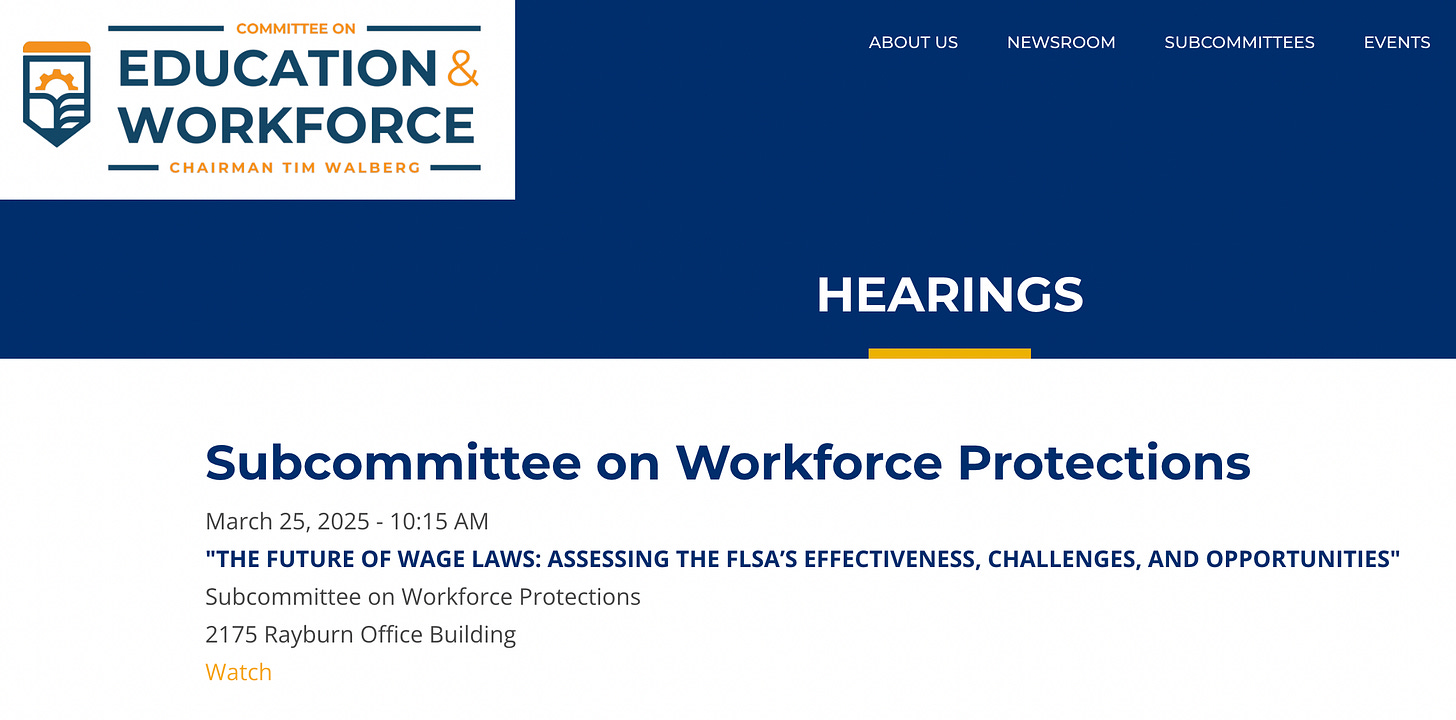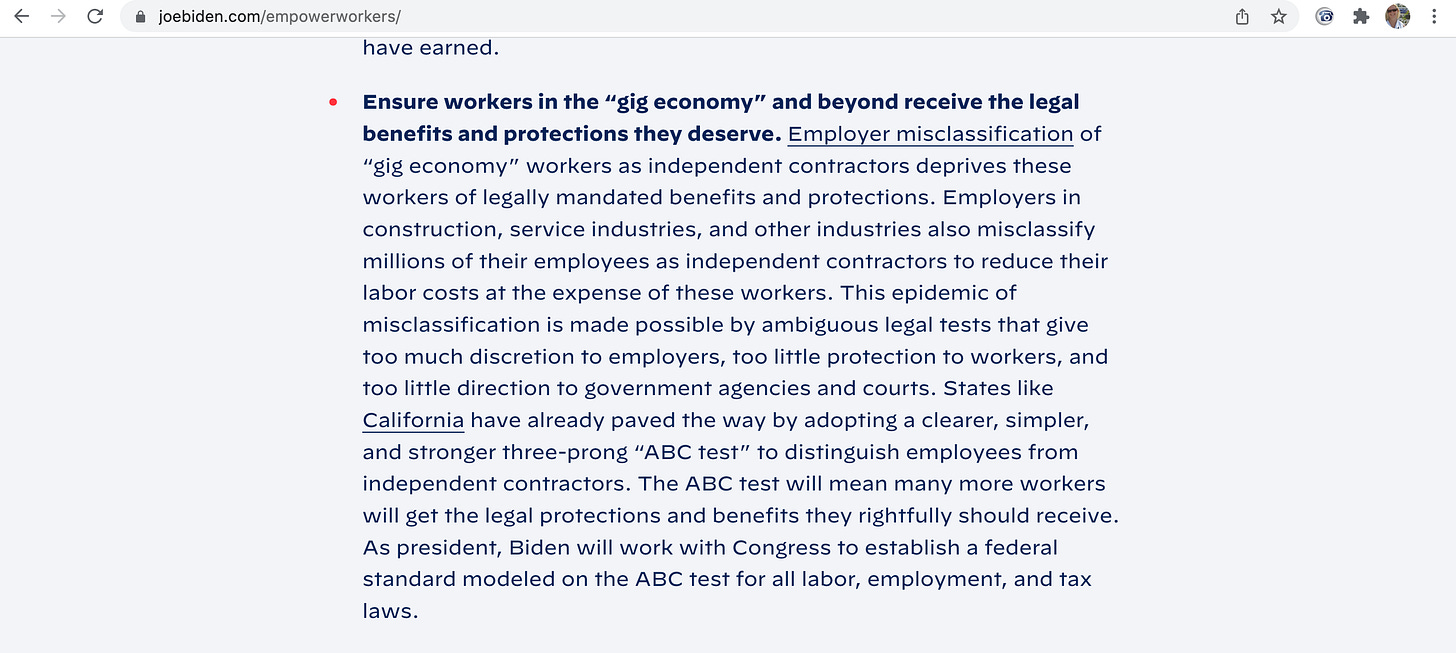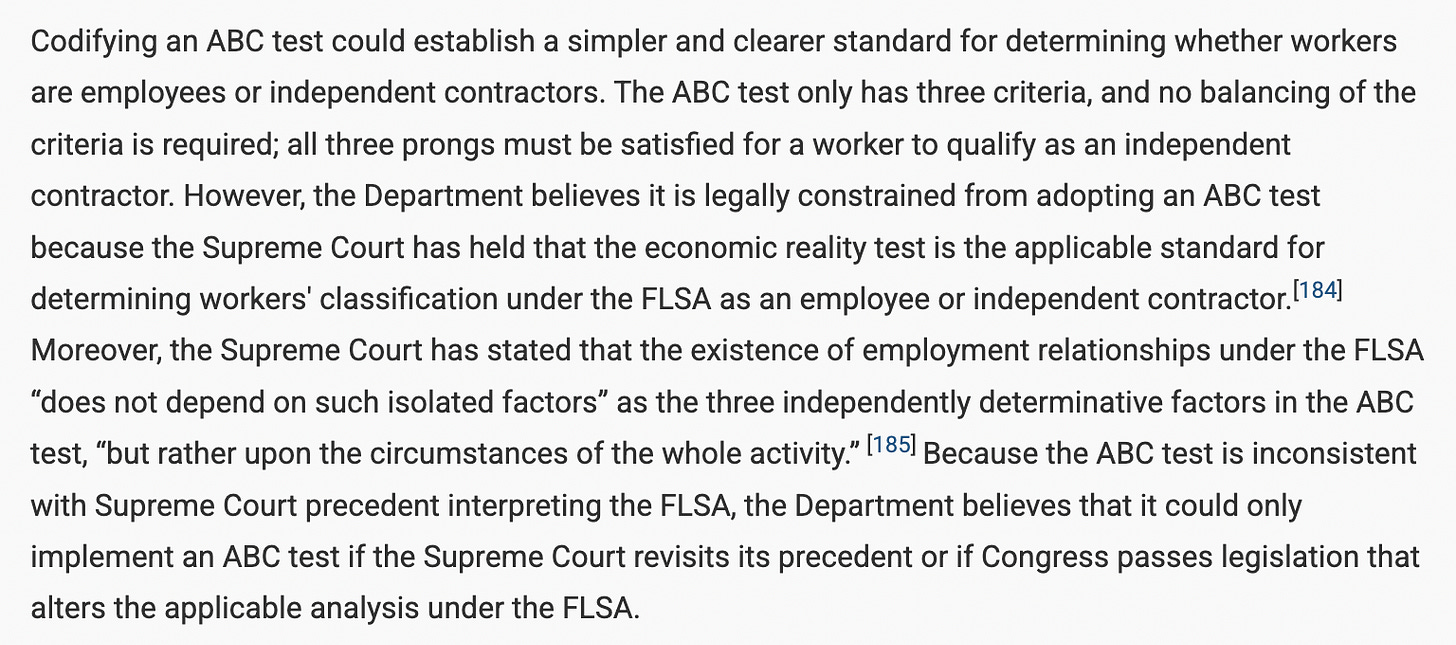Next Stop: Normalcy?
A hearing scheduled for March 25 on Capitol Hill could finally start straightening out the independent-contractor policy mess.
If I’m being truly honest, I must admit that on more than a few days since the current freelance-busting drive began, I’ve thought the Democratic Party blew right past the stop for Weirdville and cruised straight into the State of Insanity.
It seemed bizarre that so many California Democrats, back in 2019, embraced the idea that outlawing independent contractors’ business relationships would somehow magically create traditional union jobs. The state’s Legislative Analyst’s Office tried to warn them—in a report filled with bureaucrat-speak for “um, yo, that’s probably not what’s going to happen with Assembly Bill 5”—but the train to Crazytown was already barreling down the tracks. And the freelance-busting brigade was scheduling additional stops in the blue states of New Jersey, New York, Illinois and Minnesota before finally attempting to ram their way at full speed into Washington, D.C.
Now, here we are, six long and utterly ridiculous years later. We All Told You So doesn’t feel nearly strong enough to describe the fallout in California. Economists have proved that AB5 really did destroy people’s incomes and careers. Everyday voters of all political persuasions have demonstrated that they will rise up, join together and fight to end this madness at the state and federal levels alike, what with 80% of independent contractors preferring to be self-employed.
And yet, as of this month, we still have nearly an entire political party standing on the wrong side of this 80/20 commonsense issue.
Luckily, we also have nearly an entire political party trying to stop the stupid from spreading—and actually being in a position to get it done.
Here’s the current state of play:
Most Democrats in Washington just supported reintroducing the Protecting the Right to Organize Act, which is based on California’s AB5. Everyone in the party’s leadership is leading the continuing effort to drive this failed freelance-busting regulatory language down the unwilling throats of tens of millions of independent contractors, all across the nation.
Most Republicans are doing the opposite. In California, Republican state Assemblyman Tri Ta just called for yet more fixes to AB5 along with a U.S. Department of Justice investigation into its harmful effects. On Capitol Hill, Congressman Kevin Kiley, R-California, introduced the Modern Worker Empowerment Act to protect independent contractors nationwide, while the Republican-led House Committee on Education & Workforce just announced a hearing to be held March 25 about the Fair Labor Standards Act:
This hearing is important in the fight to protect everyone’s freedom to hang out a shingle and go into business for ourselves, as independent contractors.
Why? Because the Fair Labor Standards Act, which was written in 1938, is one of the main federal laws involved in the recent wave of freelance busting. It’s also the law involved with multiple lawsuits filed against the Biden-Harris administration regarding its independent contractor policy, including this lawsuit, in which I’m one of the plaintiffs.
The Fair Labor Standards Act has been one of the major battlefields in the broader war over independent-contractor policy. For that reason, I’m thrilled to see a congressional hearing into what’s been happening with this law, which requires serious scrutiny.
It’s about damn time that Congress did something to protect everyone’s freedom to earn a living in whatever way works best for us.
The Recent FLSA Battles
What’s been happening with regard to the Fair Labor Standards Act can be a little hard to understand. Here’s a simplified breakdown.
President Trump, during his first term in the White House, saw what was happening to independent contractors in California with Assembly Bill 5. He couldn’t stop that state law from taking effect, but he did try to help stop the lunacy from spreading all across the country. His administration issued a rule through the U.S. Labor Department regarding independent contractors and the Fair Labor Standards Act.
At the time, in early 2021, U.S. Labor Secretary Eugene Scalia wrote about how the Trump administration felt the need to take this action specifically to try and stop the craziness of California’s AB5 from expanding nationwide:
“[I]n the last few years, liberal activists and politicians have tried to drastically curtail the recognition of independent contractors.
“At the forefront of that effort was AB-5, a California law enacted in 2019. The law required businesses to change the way they classify many of their work relationships, tilting the tables steeply towards identifying workers as employees rather than independent contractors.”
Then, we had an election, and the Democrats took over in Washington. President Biden and Vice President Harris had both supported California’s AB5. Their plan, according to Biden’s campaign website, was to make that California law’s regulatory language (called the ABC Test) the basis of all labor, employment and tax law nationwide.
Biden wrote that California had “paved the way” for the whole country to be subjected to this career-destroying plan next:
Democrats then tried, but failed, to put this plan into motion every which way they could. In Congress, they pushed the Protecting the Right to Organize Act, whose independent-contractor language is based on California’s AB5. The PRO Act is about defining independent contractors for purposes of the National Labor Relations Act—labor law, as described in the Biden plan to target all labor, employment and tax law.
Employment law, meanwhile, generally falls under the Fair Labor Standards Act. That’s why the Biden-Harris Labor Department rescinded the independent-contractor rule that President Trump had put in place.
In 2022, the Biden-Harris Labor Department published its thinking about a new independent-contractor rule that it wanted to implement for the Fair Labor Standards Act, seeming to indicate that the department would like to adopt California’s ABC Test nationwide, but couldn’t do so without action happening first in Congress or the U.S. Supreme Court:
Then, after a bunch of regulatory rigamarole, the Biden-Harris administration published its final independent-contractor rule. The administration outright acknowledged that unionists supported this plan to undo the Trump rule from 2021, while most independent contractors were opposed to the change:
Here’s how our pro bono attorneys at the Pacific Legal Foundation described the Biden-Harris administration’s rule when we filed our lawsuit about it in federal court:
“The Fair Labor Standards Act of 1938 governs federal minimum wage and overtime law. While the law sets out wage and hour standards, as well as civil and criminal punishment for non-compliant employers, the statute fails to define key terms like ‘employee’ and ‘independent contractor.’
“This lack of uniformly accepted definitions has frustrated courts and the regulated public and put businesses at risk of harsh penalties for over 80 years. Companies and contractors need to know the rules so they can enter into agreements without fear of future enforcement or lawsuits.
“The Trump administration’s [Department of Labor] simplified and clarified worker classifications with a rule that put the focus on two criteria: the worker’s degree of control and the worker’s ability to make a profit. But now, the Biden administration has upended that straightforward rule and replaced it with an interpretation so vague and uncertain that only the DOL itself can tell if an independent contracting relationship exists. It has made this change with a wholly inadequate justification, leaving millions of contractors twisting in the wind.”
Today, there are various lawsuits against the Biden administration’s rule in different phases of arguments or appeals, in multiple federal courts.
All of this back-and-forth at the U.S. Labor Department from administration to administration is why the hearing later this month in Congress about the Fair Labor Standards Act is important to independent contractors.
If Congress passes legislation to set a clear and reasonable standard for defining who can be legally self-employed under the Fair Labor Standards Act—and if President Trump then signs such a bill into law—it should go a long way toward starting to fix this entire freelance-busting mess that California’s AB5 set in motion back in 2019.
That’s exactly what Congressman Kiley’s bill, the Modern Worker Empowerment Act, would do. As it states right at the top, its purpose is “to amend the Fair Labor Standards Act of 1938 and the National Labor Relations Act to clarify the standard for determining whether an individual is an employee.”
In other words, the Modern Worker Empowerment Act is a way for Congress to stop the bureaucratic back-and-forth coming out of the U.S. Labor Department every time an administration changes. It also would protect every independent contractor in the country from the California-style freelance busting that Democrats are still trying to push into law via the PRO Act.
We Want H.R. 1319
The upcoming hearing on Capitol Hill about the Fair Labor Standards Act, hopefully, will include discussion of the Modern Worker Empowerment Act, as well as all the recent years of relentless, remorseless and ridiculous freelance busting that make it so necessary to amend that law.
Think about it: The way we all work has changed a lot since the Fair Labor Standards Act was written back in 1938. We need to make sure that modern law protects the modern workforce—especially with more than 6 in 10 Americans saying we would prefer to be our own bosses.
What happened in California was the opposite of protecting such hardworking people. It was attacking them. The PRO Act would jack up that attack to a nationwide level. The Modern Worker Empowerment Act is intended to be the bulwark that protects us all in this storm.
As Kiley put it when describing his reasoning for sponsoring the bill: “California’s disastrous AB5 law wreaked havoc on independent workers, stripping them of their ability to work on their own terms and forcing businesses to cut off contractor relationships. Shifting federal regulations threaten to impose similar uncertainty nationwide, putting millions of workers at risk.”
He’s right. And we should all help him get the Modern Worker Empowerment Act into law while the balance of power in Washington makes it possible.
If you, like me, value our freedom to choose self-employment and want Congress to protect it, now is a very good time to contact your representative. (If you don’t know how to find your representative, click here and type in your ZIP Code.) Explain that you are happy to hear about this hearing being scheduled. Urge your representative to co-sponsor H.R. 1319, the Modern Worker Empowerment Act.
Here’s hoping that at the March 25 hearing, we start to see real movement toward getting the train back on the tracks of common sense.
Then we can all, at long last, simply go back to earning a living in peace.








Nicely written, Kim. Thanks.
I support Kiley's bills, of course, but I'm leery of the "opportunities and risk" criterion. Judges and agencies have sometimes taken a pretty hard line on it, insisting, for example, that simply buying a computer and an ad on LinkedIn isn't risky enough to satisfy it. I prefer establishing a business identity as a criterion instead. Ah well.
Do you know whether the hearing will be online? I didn't find anything saying so.